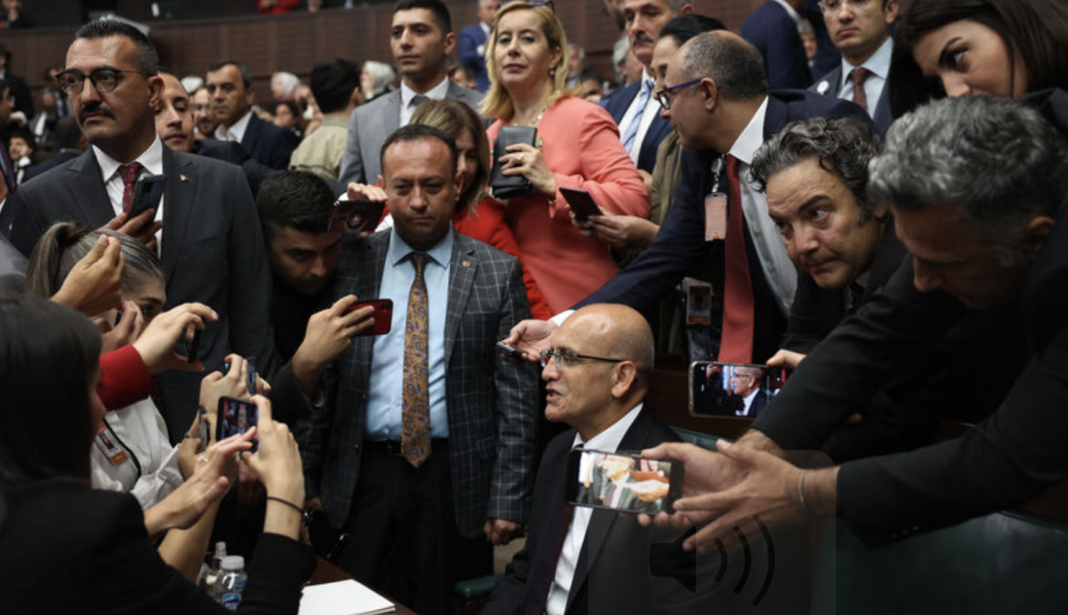After the March local polls, Ankara will be free of major domestic political concerns and is expected to enact a stern program to cool the economy and make real progress in fighting inflation.
November 18, 2023, Mustafa Sonmez, Al-Monitor.
A combination of factors helped Turkey ease its foreign-currency woes during the summer, but the problem could resurge in the coming months as Ankara balks at unpopular measures ahead of local elections in spring.
Decreasing uncertainty after the presidential and parliamentary elections in May laid the ground for foreign-currency assets held abroad or “under the pillow” to flow into the formal economy. That confidence was increased after Mehmet Simsek, an economist highly regarded among international investors, took the reins of the economy in June. According to central bank data, such inflows — recorded under “net errors and omissions” in the balance of payments — totaled about $16 billion in the four months from June through September.
In the same period, foreign investors put about $5 billion in Turkish stocks and sovereign bonds, while inflows in the form of bank deposits and loans totaled some $9.5 billion. Foreign direct investments were the weakest link. While real estate sales brought in $930 million, actual direct investments saw an outflow of about $630 million.
All in all, foreign inflows amounted to nearly $15 billion in the first four months under Simsek’s economic leadership, with the figure reaching some $31 billion including “net errors and omissions,” known also as inflows from unknown sources. That sum easily covered the $3.4 billion current account deficit in the June-September period, leading also to a $27 billion increase in the country’s foreign reserves.
As a result, the Turkish lira remained relatively stable, especially in August and September.
Simsek’s leadership
Before the elections, Ankara pursued an unconventional policy of low interest rates, despite runaway inflation, and intervened in the foreign-exchange market to prop up the lira. After his re-election in late May, President Recep Tayyip Erdogan appointed Simsek to run the economy, also replacing the central bank’s leadership. Simsek pledged a return to “rational ground,” which meant, for a while, that the market was allowed to freely determine the exchange rate of the dollar vs. the embattled lira. As a result, the lira tumbled and the price of the dollar — a crucial factor for the import-reliant Turkish economy — rose 17.4% in June and 14.6% in July.
As expected, the more expensive dollar became the main driver of price increases. Annual consumer inflation, which stood just below 40% in May, shot up to nearly 60% in August. In its latest inflation report, released in early November, the central bank notes that a third of the 61.5% annual inflation in October stemmed from exchange-rate-driven cost pressures.
Since August, the slide of the lira has notably slowed, with the price of the dollar increasing 2% that month, staying mostly stable in September and rising 3.2% in October. The inflow of foreign funds and those of unknown origin were instrumental in the relative calm.
The slowing pace of growth and thus imports and, more importantly, the increased foreign-exchange revenues, narrowed the current account deficit. The foreign-exchange revenues of the tourism sector topped $20 billion in the four-month period. As a result, Turkey even posted current account surpluses in June and September. With the current account deficit now manageable, the foreign-currency inflows helped replenish the country’s foreign reserves, giving Ankara a summer respite on this long-running problem.
The October current account data has yet to be released, but in an important sign of a surplus, Trade Ministry figures put the monthly foreign trade deficit in October at $6.7 billion — a gap that the revenues from tourism could cover.
Still, things are likely to be a bit different in the ensuing months. In November, Turkey’s foreign-currency revenues from tourism usually drop to half of those in September and October. In low seasons, the tourism industry’s foreign-currency revenues typically range between $1 billion and $2 billion, making it difficult to sustain the current account performance of the summer.
Eyes on local elections
Meanwhile, Turkey is headed for local elections in March, in which Erdogan is eager to regain the local administrations in a number of big cities, including Istanbul and Ankara, which the opposition won in 2019.
Thus, he is believed to be averse to cooling the economy until the end of March. And Simsek and the central bank leadership appear unwilling to clash with the president, despite their appetite for a firm disinflation program. They have failed to implement the measures required to curb demand, though they frequently talk about them. Chief among those measures are the curbing of pay rises and sharply hiking interest rates.
The government is expected to announce fresh hikes to public-sector salaries and the minimum wage in December, and Simsek and his team will apparently yield to Erdogan’s decisions in the lead-up to the local polls.
Without the desired contraction in demand, economic growth would not slow and thus imports would not decrease. This raises the prospect of resurging current account woes during the winter, with monthly deficits back in the region of $4 billion to $5 billion. Along with imports, the repayments of short-term external debt will also drive the demand for foreign exchange, meaning that foreign reserves might melt again.
After the March local elections, however, Ankara will be free of major domestic political concerns and is expected to enact a stern disinflation program that would cool the economy and slow imports to make progress in fighting inflation. Simsek himself has frequently said that economic improvements will become more pronounced in the second half of 2024.

